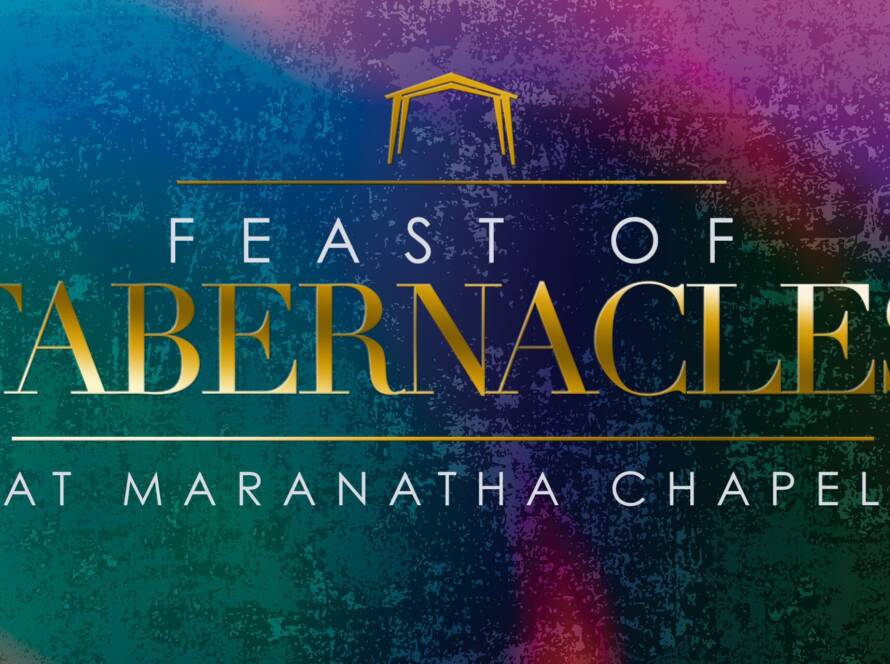
As we take time to consider the twentieth anniversary of 9/11, the Day of Atonement is even more relevant…
Ten days after the joyous celebration of the Feast of Trumpets, the Jewish calendar declares a serious and humbling day. Here’s the story behind the Day of Atonement:
Moses came down from Mount Sinai, his arms wrapped around two large clay tablets. He’d spent forty days in God’s presence. Forty days on holy ground, receiving the Law, seeing the words miraculously inscribed on the tablets.
He must have been horrified to see the decadent, rebellious scene in the Hebrew camp. His people were dancing and worshiping a golden calf, indulging in food and drink. Furious, Moses threw the tablets down, smashing them into pieces. But in spite of his anger, Moses returned to the Lord to seek atonement for his people. He pleaded, “Forgive their sin—but if not, I pray, blot me out of Your book which You have written” (Exodus 32:32).
That dash between “forgive their sin” and “but if not” is a long pause, the like of which occurs nowhere else in Scripture. Understand what Moses was saying. He begged the Lord to forgive the people. But if not…
Moses’ willingness to be stricken from God’s book is a powerful foreshadowing of the sacrifice of Jesus and the story behind the Day of Atonement. This day, also known as Yom Kippur, occurs ten days after the Feast of Trumpets. Kippur is from the Hebrew word kaphar, meaning “to cover.”
This is the most sacred and solemn day in the Jewish year.
We’ve learned that the seven ordained Feasts of the Lord (see Leviticus 23) are all fulfilled in Jesus Christ. Passover, for example, represented the forgiveness of sin, and Jesus became the ultimate Passover lamb, offering forgiveness to all humanity. But Passover was forgiveness for individual salvation, while the Day of Atonement was forgiveness for the nation, or national salvation.
Leviticus 23:27 declares, “The tenth day of this seventh month shall be the Day of Atonement. It shall be a holy convocation for you; you shall afflict your souls, and offer an offering made by fire to the Lord.” (Leviticus 23:27)
The day was designated as a time of confession and self-denial.
The people fasted and repented while the high priest entered the Holy of Holies, first to make a sacrifice on his own behalf, and then on behalf of the nation (see Leviticus 16:1–34; 23:27). Today, the main focus of Yom Kippur centers around synagogue services, often decorated in white to symbolize purity and cleansing from transgression.1
The blood of bulls sacrificed on Yom Kippur covered sins. In contrast, the promised Messiah, Yeshua, took sins away forever: “He took blood into that Most Holy Place, but not the blood of goats and calves. He took his own blood, and with it he secured our salvation forever” (Hebrews 9:12, nlt).
The Day of Atonement will be fulfilled by the second coming of Jesus the Messiah when He returns to establish His kingdom. It will be an emotional day for the Jewish people when they see their Messiah and know him for the first time:
And I will pour on the house of David and on the inhabitants of Jerusalem the Spirit of grace and supplication; then they will look on Me whom they pierced. Yes, they will mourn for Him as one mourns for his only son, and grieve for Him as one grieves for a firstborn.…
In that day a fountain shall be opened for the house of David and for the inhabitants of Jerusalem, for sin and for uncleanness. (Zechariah 12:10; 13:1)
According to Zechariah 14:4–5, on that day, the Lord’s feet will stand on the Mount of Olives, and the mount will be split from east to west, creating a large valley. Half the mountain will move north, half south, and people will run through the valley as if fleeing an earthquake. “Thus the Lord my God will come” (verse 5). Christ will touch down on the Mount of Olives for all to see. This is the day that “all Israel will be saved” (Romans 11:26).
As we mark the twentieth anniversary of the terrorist attacks of 9/11, may we continue to pray for the peace of Jerusalem (Psalm 122:6).
Please also join me in praying for our own nation, seeking God’s forgiveness of our own sins. May we humble ourselves before Him and ask for His grace and mercy over our beloved country.



